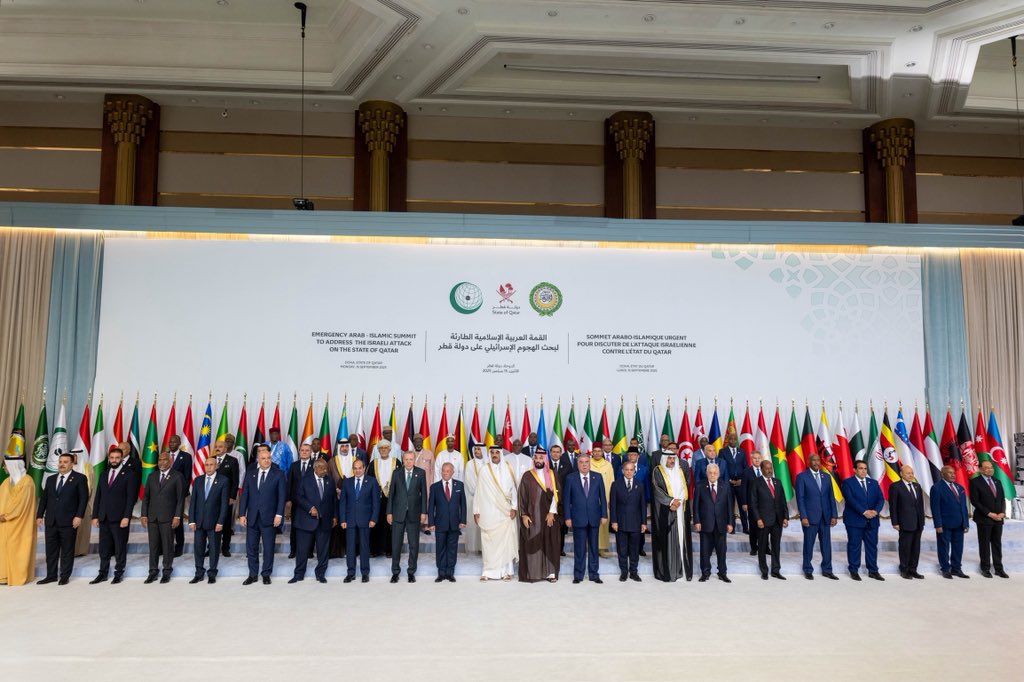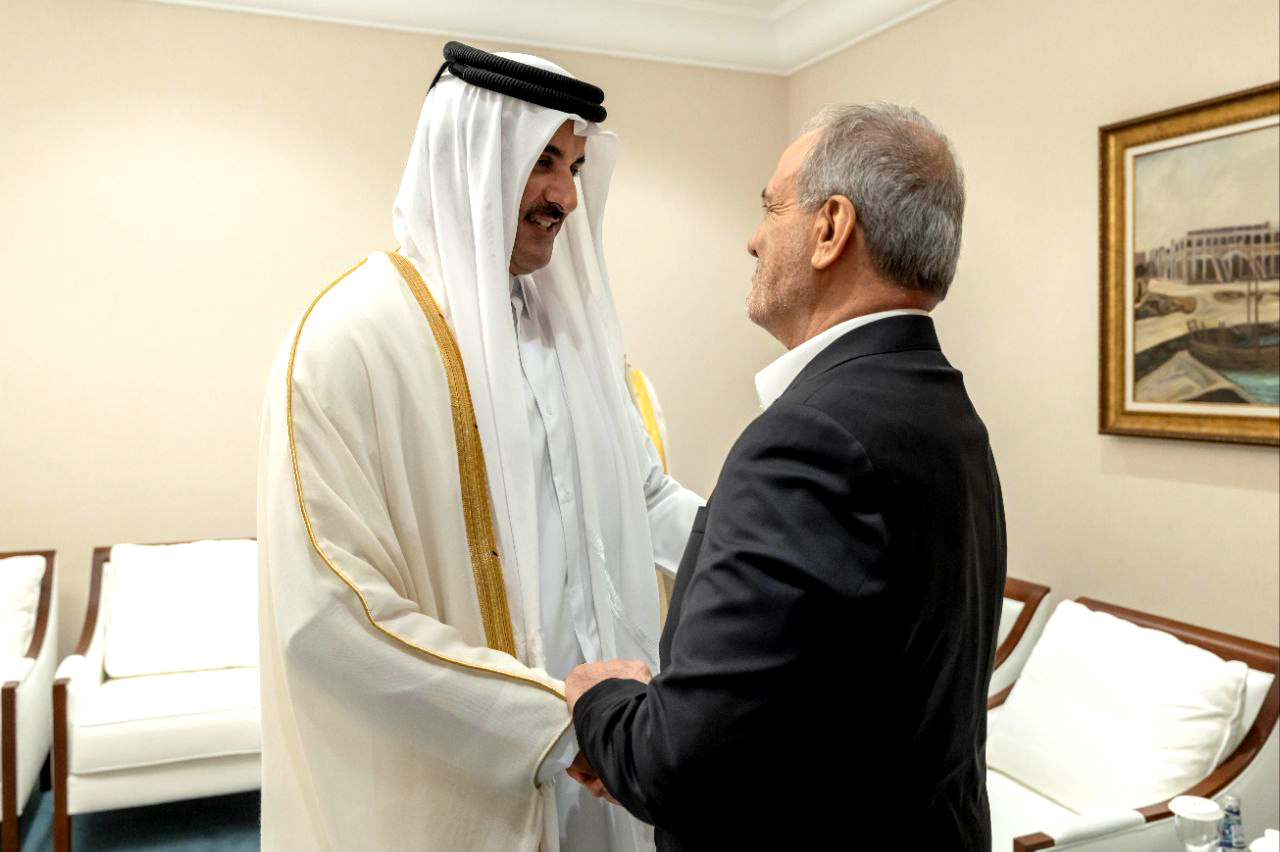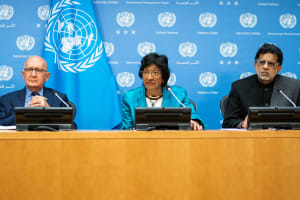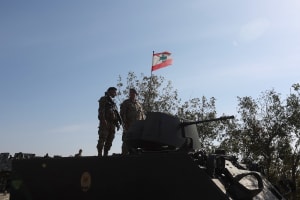Why do most Middle East governments hate Qatar – but cooperate with it against Israel

At least since the Abraham Accords were signed five years ago, it has been an open secret that many of the region’s leaders hate Israel much less than their statements have always suggested.
On the other hand, many of them hate Qatar much more than they let on.
In the wake of Israel’s unprecedented strikes in Qatar, over 50 Arab and Muslim leaders congregated in Doha to demonstrate unity and support for the Gulf emirate.
However, behind the scenes, some of those same leaders probably celebrated the Israeli strikes in secret and may have even allowed Israel to use their airspace to carry out the operation.
Many of the region’s governments are led by authoritarian figures, who strictly separate their public, official statements and policies from their true intentions and goals.
These are often kept quiet and only sometimes find open expression.
After Israel’s strikes on Hamas leaders, Qatar tried to leverage the attack to shore up support among the Gulf states, arguing that Israel is a threat to the whole region.
However, “The Qataris still suspect that the Emirates may have had a hand [in the strike], and that the Saudis may have allowed the use of their airspace,” Qatar expert Dr. Ariel Admoni told Israel Hayom.
“They want to make sure that in this equation, the Emirates and the Saudis are on their side.”
And that is far from obvious.
To understand the strained relations between Qatar and its “brotherly states” in the Gulf region, as well as several other countries like Egypt and Jordan, we have to look into the past.
In the first decades after it gained independence from Great Britain in 1971, the emirate was in the shadow of its neighbors, especially the Kingdom of Saudi Arabia.
But under the father of the current emir, in the 1990s, Qatar began to strike out and develop an independent foreign policy from the regional power, Saudi Arabia – unlike the United Arab Emirates and Bahrain, for example, which continue to cooperate closely with the Saudis.
This set up a collision course as Qatar had to choose “the other side” on many issues.
Most crucially, it began to support the Islamist movements like the Muslim Brotherhood and affiliated terror groups, many of which had long been fighting against the Muslim world’s leaders, whom they see as not religious enough.
Qatar began hosting many of the Brotherhood’s leaders, who had been violently persecuted across the Middle East, and the newly established Al Jazeera channel became their most prominent loudspeaker to propagate their propaganda against the region’s governments – irrevocably harming Qatar’s relations with them.

In addition, Qatar also established close relations with the Shiite Iranian regime, which had been trying to export its “Islamic Revolution” to the neighboring countries for decades and is the Sunni Saudi Arabia’s main regional rival.
Already one year into the new Qatari emir’s reign, a coup attempt, probably supported by Saudi Arabia, Egypt, and the UAE, nearly succeeded in toppling him.
The situation continued to simmer until the “Arab Spring” in 2011, in which Saudi Arabia and the UAE strongly supported either the established regimes or conservative Sunni factions, while Qatar supported radical Islamist groups.
This played out in Syria, where Saudi Arabia mostly supported the more secular rebel groups, while Qatar supported Islamist terror groups like the Al Qaeda-affiliated Nusra Front.
Similarly, Saudi Arabia and its allies had supported the Egyptian regime of Hosni Mubarak, while Qatar backed the Muslim Brotherhood-led government, which toppled him in 2012.
A first large diplomatic crisis occurred in 2014, when the UAE, Saudi Arabia, and Bahrain recalled their ambassadors from Qatar. This crisis only lasted for several months but it was a clear sign of things to come.
Relations further deteriorated in the coming years. In 2015, members of the Qatari royal house were kidnapped and held for ransom by Iran-affiliated terrorists in Iraq. Two years later, Qatar paid exorbitant amounts of money to ransom them, effectively financing their (the terrorists') activities for years to come and angering the Saudi-aligned countries.
The Financial Times reported that $700 million was given to several Iranian-backed Shi’a militias in Iraq, while the Syrian Islamist groups Tahrir al-Sham and Ahrar al-Sham received $120–140 million and $80 million, respectively.
As a result, in 2017, Saudi Arabia and the UAE led an alliance – joined by Yemen, Egypt, the Maldives, and Bahrain, and later by Jordan – in an unprecedented diplomatic campaign against Qatar.
They imposed a land, water and air blockade on the emirate, broke off diplomatic relations, urged their citizens to leave Qatar, and expelled Qatari citizens and diplomats.
Saudi Arabia closed its land crossings and barred Qatari planes from its airspace, while the rest of the alliance closed its ports to Qatari ships.
The alliance also issued a changing list of demands to Qatar.
These reportedly included a commitment to combat terrorism and end financial support for it; prohibiting the spread, incitement, promotion or justification of violence; refraining from interfering in the internal affairs of other states by supporting illegal organizations, and a new commitment to previous agreements.
Specifically, the alliance called for the closure of Al Jazeera and other Qatari news outlets, including The Middle East Eye and Al-Araby Al-Jadeed, which they accused of broadcasting propaganda against the governments, along with Islamist ideology.
The nations also demanded the removal of the Turkish military base in Qatar and the reduction of ties with Iran; the expulsion of IRGC operatives; and a general end of contact with terror groups like Hamas, ISIS, Al Qaeda, and Hezbollah, among others.
However, Qatar refused the demands and instead drew closer to Turkey and Iran.
Qatar Airways rerouted flights over Iranian territory, Qatar-bound ships were sent to Oman, and the Qatari economy started relying on Turkish products.
In the end, Qatar stubbornly refused to cave in, and the election of U.S. President Joe Biden in 2020 signaled to the Saudi-led alliance that their time was up.
In 2021, Kuwait and the U.S. brokered a deal to restore relations between all involved nations, without Qatar having fulfilled any of the demands.
The extraordinary events of the Qatar diplomatic crisis, which were close to deteriorating into armed conflict at one point, are now almost forgotten amid the wars of the subsequent years.
However, to understand current events, it is crucial to keep in mind the extreme enmity many Arab states continue to hold toward Qatar.
For example, when the unprecedented strike on a fellow Gulf country is met with bombastic condemnations against Israel but remains without any practical effect, while the Abraham Accords continue to endure through two years of war, this enmity is one of the reasons.

Is All Israel News’ faithful reporting important to you? Be part of it – help us continue by becoming a $5/month supporting partner.

Hanan Lischinsky has a Master’s degree in Middle East & Israel studies from Heidelberg University in Germany, where he spent part of his childhood and youth. He finished High School in Jerusalem and served in the IDF’s Intelligence Corps. Hanan and his wife live near Jerusalem, and he joined ALL ISRAEL NEWS in August 2023.
You might also like to read this:

















